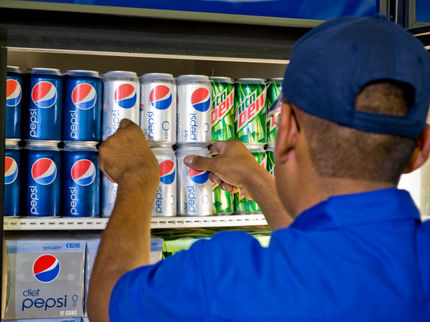Customers order less frequently from Hellofresh - but operating profit jump
In the quarter just ended, the cooking box mail order company Hellofresh suffered a significant drop in demand as a result of the global consumer slump. Thanks to lower costs and postponed marketing expenses, the Berlin-based company nevertheless managed to achieve a jump in operating profits. With the presentation of the half-year figures, the Management Board confirmed key data from mid-July.
At that time, the management had cut the sales forecast, but had become somewhat more optimistic for the profit. However, the news was greeted with disillusionment on the stock market on Thursday: The share lost almost 2 percent in the morning.
The number of active customers slumped in the second quarter compared to the same period last year by almost nine percent to 7.3 million, as the MDax group announced on Thursday. Hellofresh counts as active customers all those who have ordered at least one Kochbox within the last three months, whether at full or reduced price or even free of charge.
The group saw a larger decline in North America, by far its most important segment, than in all of its other countries. The number of orders also fell more sharply in North America than at Group level.
The total number of orders placed by the Group fell by seven percent to 30 million, while the average order value rose by around five percent. The Management Board explained that, in addition to more meals per orders, this was due to slight price increases from last year, which were now continuing. However, prices are still below the inflation-related increases at supermarkets, Group CEO Dominik Richter reiterated in a conference call with journalists.
Customers are also increasingly turning to options at extra cost, choosing a different type of meat than suggested, for example. In addition, at the end of the shopping trip - similar to the checkout area in supermarkets - they are reaching for optional desserts, snacks and beverages.
Ready-made meals from the subsidiary Factor have also caused the average order value to rise recently. Meanwhile, Hellofresh is also offering the ready-to-eat meals in Europe, Richter said. It has been serving the Netherlands and Belgium for a few weeks, with more countries to follow next year. Total sales of so-called ready-to-eat meals are expected to more than double by 2025.
Thanks to strict cost control, the cooking box supplier noticeably increased its operating profit in the reporting period. Earnings before interest, taxes, depreciation and amortization (Ebitda) adjusted for special items climbed by almost a third to just under 192 million euros. According to the Group, this was the highest quarterly figure in the company's history and significantly more than expected by industry experts. However, critics complain that food delivery services are spending less money on generating new customers because demand is lacking anyway.
Sales decreased slightly to 1.92 billion euros. Adjusted for exchange rate effects, Group revenue remained roughly stable.
Bernstein industry expert William Woods meanwhile criticized the comparatively high marketing expenditure. He said the year-on-year comparison was "worrying". "Hellofresh had to spend more on marketing while the group lost nine percent of active customers," he wrote in an initial assessment.
Company leader Richter confirmed the annual targets, which were adjusted last month. Currency-adjusted sales are expected to increase by two to eight percent in 2023. In the previous year, Hellofresh had generated 7.6 billion euros. As an adjusted operating result (Ebitda), 470 to 540 million euros are to be generated. Only in the worst scenario would the company thus earn less operationally than in the previous year.
Richter is pinning his hopes above all on the second half of the year, when growth is expected to accelerate again. He is relying on increased production capacity and an expanded range of cooking boxes, which are primarily intended to appeal to people with special diets. Advertising spending is expected to remain roughly at the previous year's level. Industry experts are looking hard at this because too many coupon and discount campaigns are putting pressure on profitability./ngu/tav/mis (dpa)
Note: This article has been translated using a computer system without human intervention. LUMITOS offers these automatic translations to present a wider range of current news. Since this article has been translated with automatic translation, it is possible that it contains errors in vocabulary, syntax or grammar. The original article in German can be found here.

































































